World Cup Countdown: 4 Weeks to Go - Remembering South Korea's Tarnished Run to the 2002 Semis
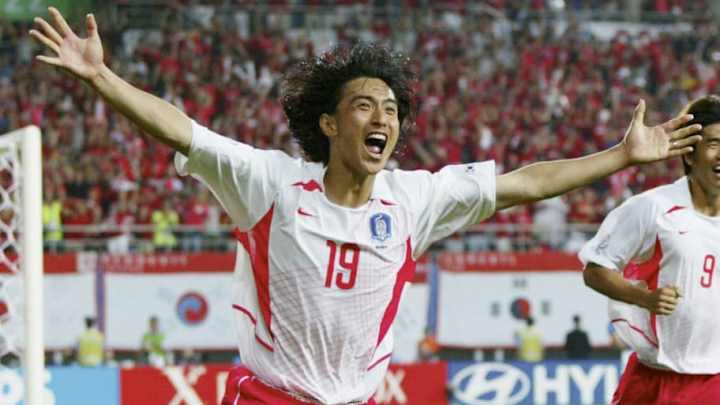
South Korea were far from new to the World Cup in 2002 having qualified for the first time in 1954. They had also been part of every instalment since 1986, though in their 14 total games, spanning five separate tournaments and nearly half a century, they had never managed a win.
South Korea were to jointly alongside Japan, the first World Cup to be played in Asia. But given their poor previous record, the country was desperate to put on a good display, as at that time no hosts had ever before exited the World Cup at the group stage. To be the first would be embarrassing.
The Korea Football Federation turned to Guus Hiddink, whose world class reputation as a coach had been built by successes with PSV Eindhoven and the Dutch national team going back to the 1980s. Hiddink was named as Head Coach towards the end of 2000 and began his new job the following year with a little under 18 months to prepare for the World Cup.
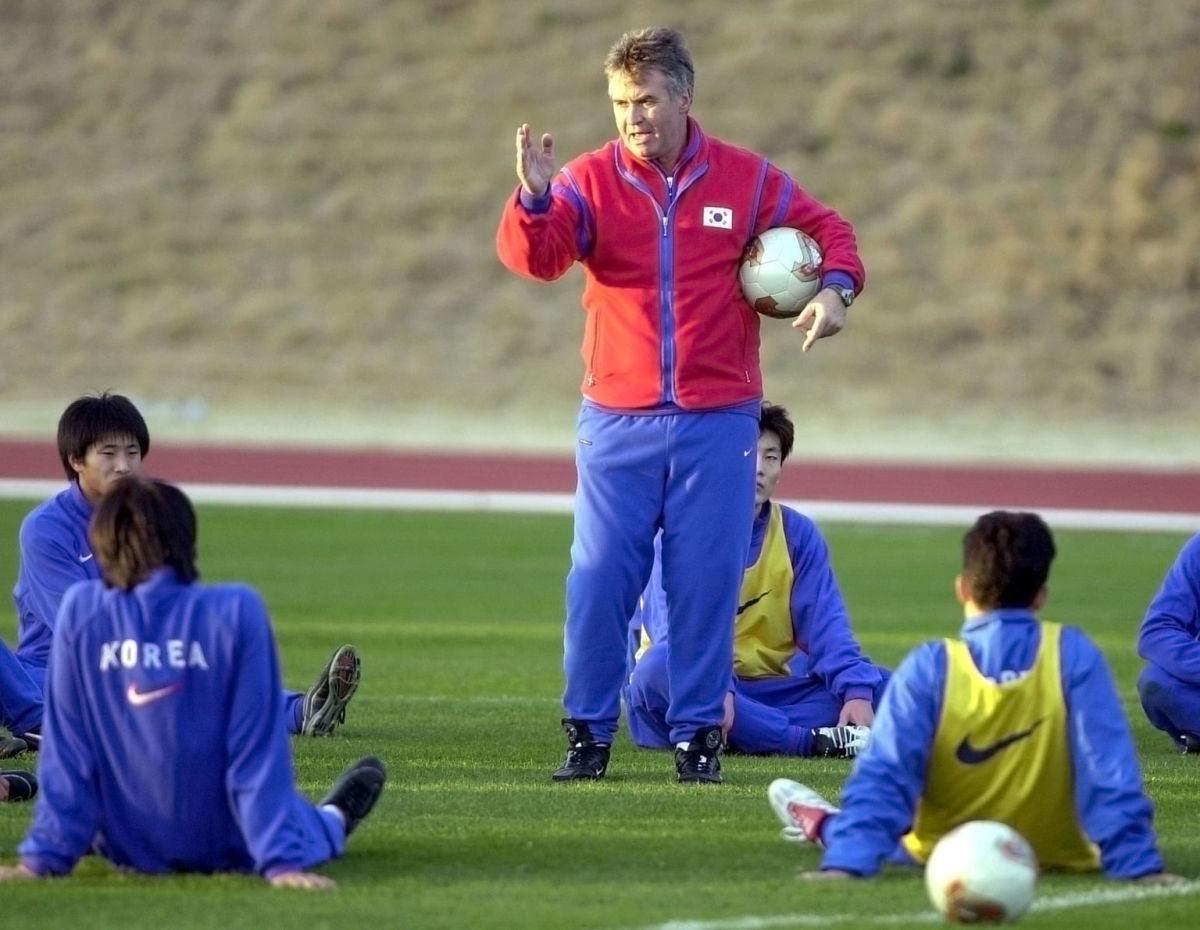
Hiddink didn't get off to the best start, nor was he a popular choice with the Korean media. He was often seen as 'bland' and was criticised for seemingly not taking the job seriously enough. Results on the pitch also did him no favours after humiliating 5-0 defeats against both France and Czech Republic in 2001. The Koreans were then invited to take part in the CONCACAF Gold Cup - part of an odd tradition of sides from outside the region participating. The team finished fourth, but failed to win a single game, including losses against Costa Rica and Canada.
Behind the scenes Hiddink was working on a plan. He had brought in his own conditioning coach to get the players to an elite level of fitness, while he had chosen not to adhere to an old Korean system which placed an emphasis on seniority. Instead, he focused on building a team around younger talents like wingers Park Ji-sung, who would also go on to earn the nickname 'Three Lungs' due to his endless stamina, and Lee Chun-soo, and full-back Lee Young-pyo.
In Poland, Portugal and the USA, South Korea had been handed an incredibly tough group and expectation weighed heavy on the team, encapsulated with a banner at their opening game which read, 'Hiddink make our dreams come true'. However, the worries were soon cast aside as the Koreans blew away Poland with a convincing 2-0 victory. It was the country's first ever win at the World Cup in 48 years of trying, but rather than a pinnacle, it was the beginning.
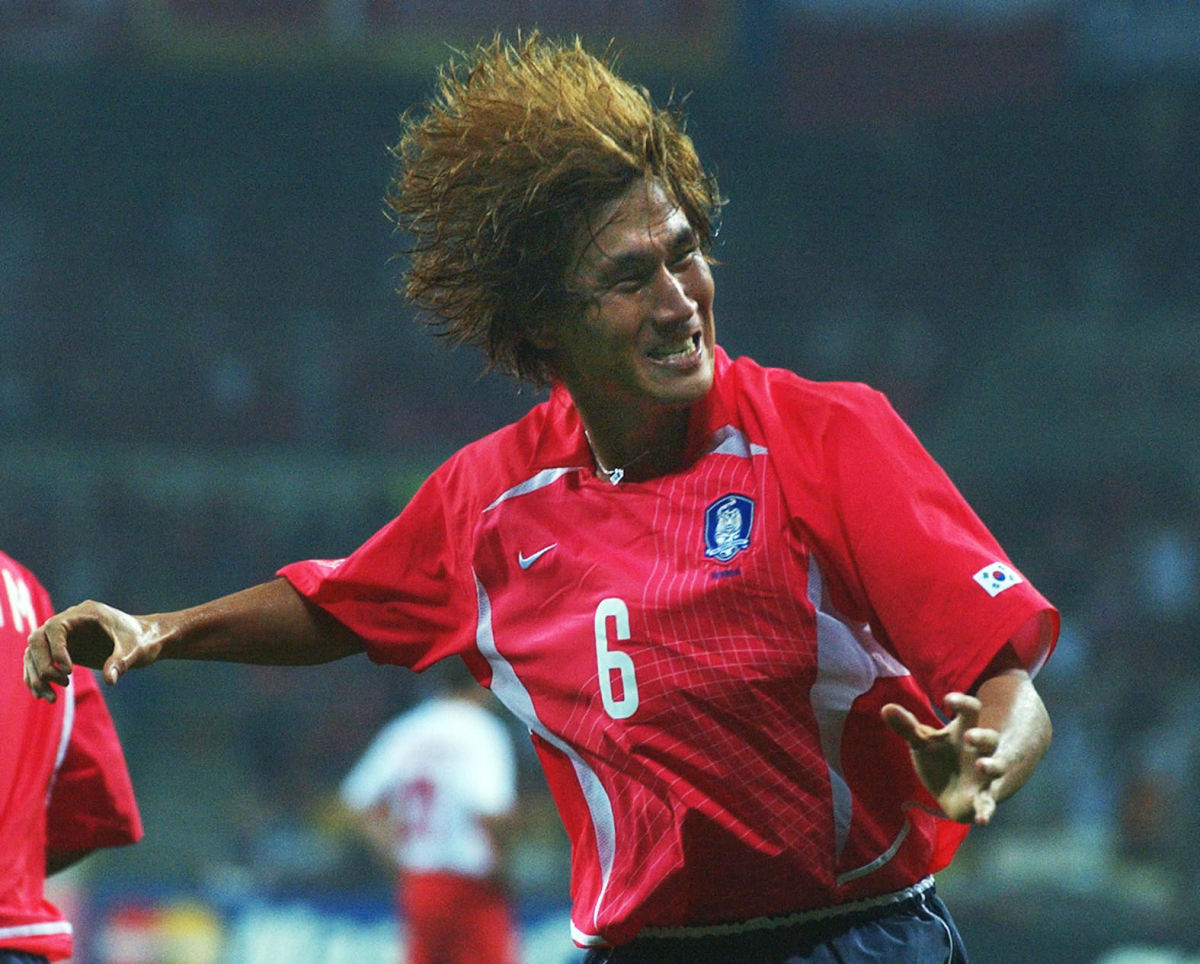
Afterwards, Poland goalkeeper Jerzy Dudek remarked how the atmosphere in the stadium had driven South Korea on. "We didn't win a ball in the air all match. Playing at home, and with that crowd behind them, Korea could easily qualify," he said. It would remain a feature.
Hiddink commented, "I communicate to these players in sweat. If you sweat, they will want to as well. They have enormous ambition but they ally that with intense commitment."
In the second game, a late strike from Ahn Jung-Hwan earned a 1-1 draw against the United States, leaving the final match against Portugal between the Koreans and the promised land of the second round. In an electric atmosphere, Hiddink's team could sense glory was near and went at their opponents right from kick-off. It proved to be too much for Portugal, who, with two players sent off, couldn't hope to match the energy of the hosts. Park's well taken goal in the second half secured the win, as well as top spot in the group and a place in the last 16.
By winning a game and avoiding embarrassment, the South Korea team had reached their target at their home World Cup, but their journey was still far from over.
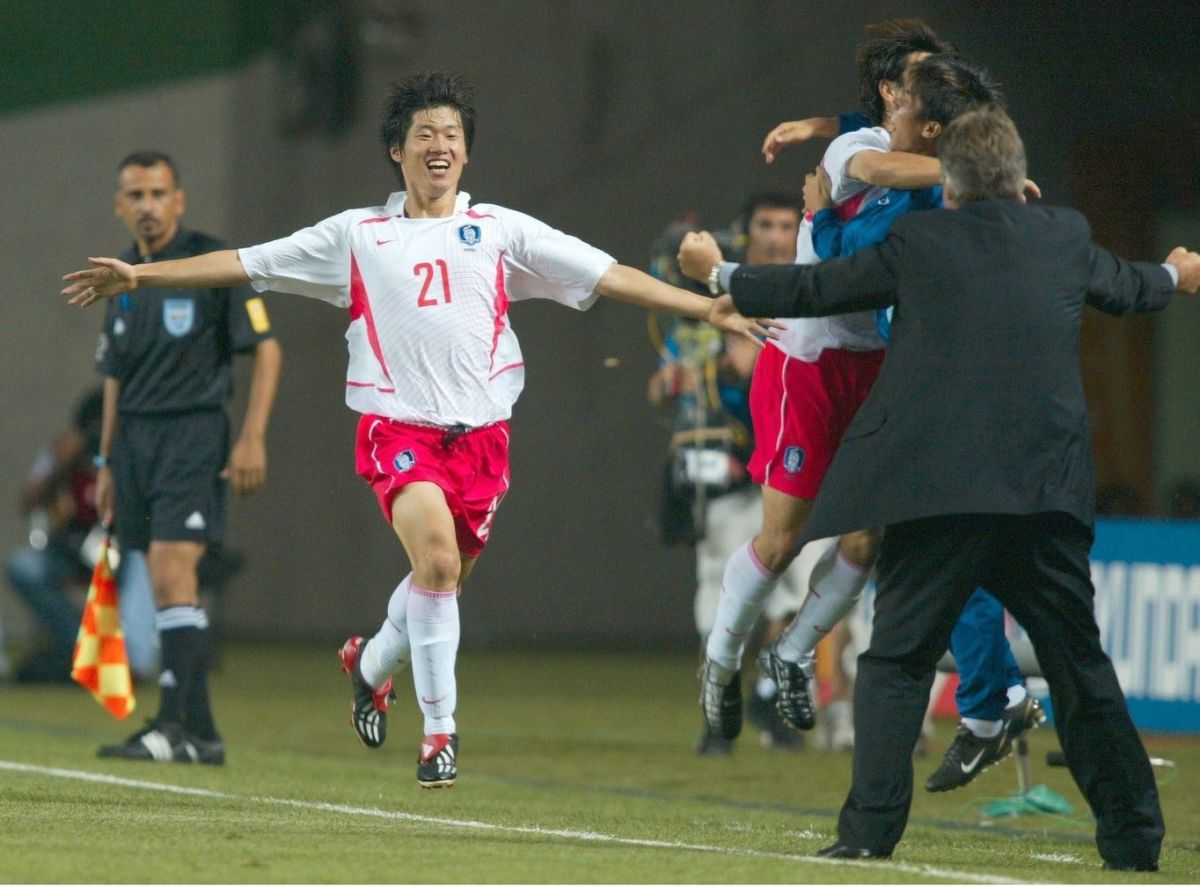
Up next was Italy, who were weakened by the absences of Alessandro Nesta and Fabio Cannavaro. Backed by a once more deafening crowd, South Korea were presented the chance of a dream start when a penalty was awarded after just four minutes. However, Ahn's strike was saved by Gianluigi Buffon. The Italians then took the lead, with Christian Vieri 'shushing' the home fans in celebration.
But South Korea kept coming and despite a frustrating lack of penetration, snatched a late equaliser through Seol Ki-hyeon to sensationally send the game to extra time. It was in the additional 30 minutes that the fitness levels Hiddink had instilled in his players began to pay off. And when Francesco Totti was sent off, the game looked to be heading to penalties. But then, with just moments remaining, came one of the all-time World Cup shocks as Ahn - with the same aerial prowess that Poland had failed to combat, climbed above Paolo Maldini to score a remarkable 'Golden Goal'. It was pandemonium as a whole country was reduced to tears of joy.
That Ahn was contracted to Italian side Perugia at the time and was sacked by the club's controversial president Luciano Gaucci for 'ruining Italian football' was an odd sideshow.
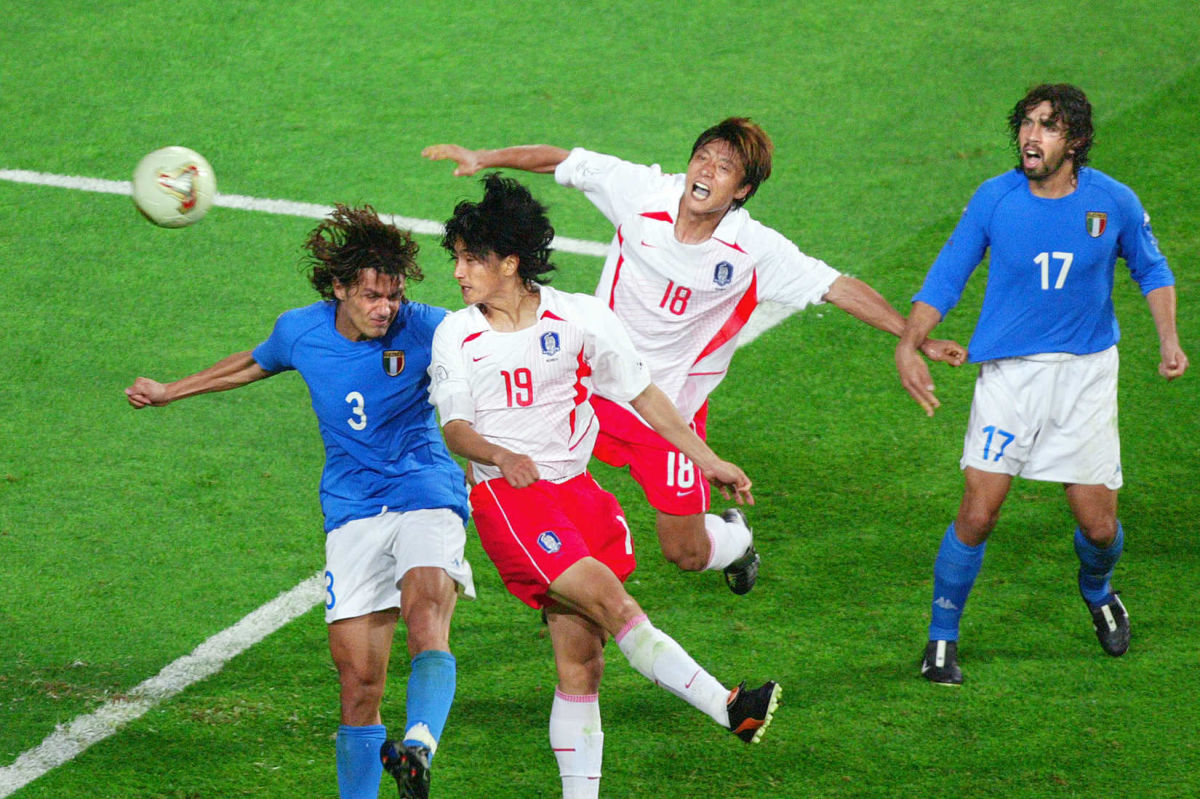
This was a World Cup of the underdog, as elsewhere Senegal had done the same to a talented Sweden side having earlier beaten reigning champions France in their opening game. At their first World Cup since 1954, a Turkish golden generation went all the way to the semi finals.
There were, however, enormous cries of foul play. Totti's dismissal, the result of a second yellow card for alleged diving was questionable, while prior to Ahn's winner, Damiano Tommasi had scored a Golden Goal for Italy, only to see it incorrectly ruled out for offside.
Gazzetta dello Sport dubbed Ecuadorian official Byron Moreno the 'worst referee ever'. His case wasn't helped when later that year he was suspended by his own federation for a string of dodgy decisions in a domestic league match, followed by a further suspension upon his return. FIFA also investigated him, while in 2010 Moreno was sentenced to 28 months in prison in the United States after being convicted of smuggling 6kg of heroin through JFK airport in New York.
Whether it was bad luck, sheer refereeing incompetence, or something darker, that game and that elimination has never sat well with Italy, while many still view South Korea's win with an asterisk. Had it been a one-off, it might simply have been forgotten about with time. But South Korea's subsequent quarter final against Spain was similarly drowned in controversy.
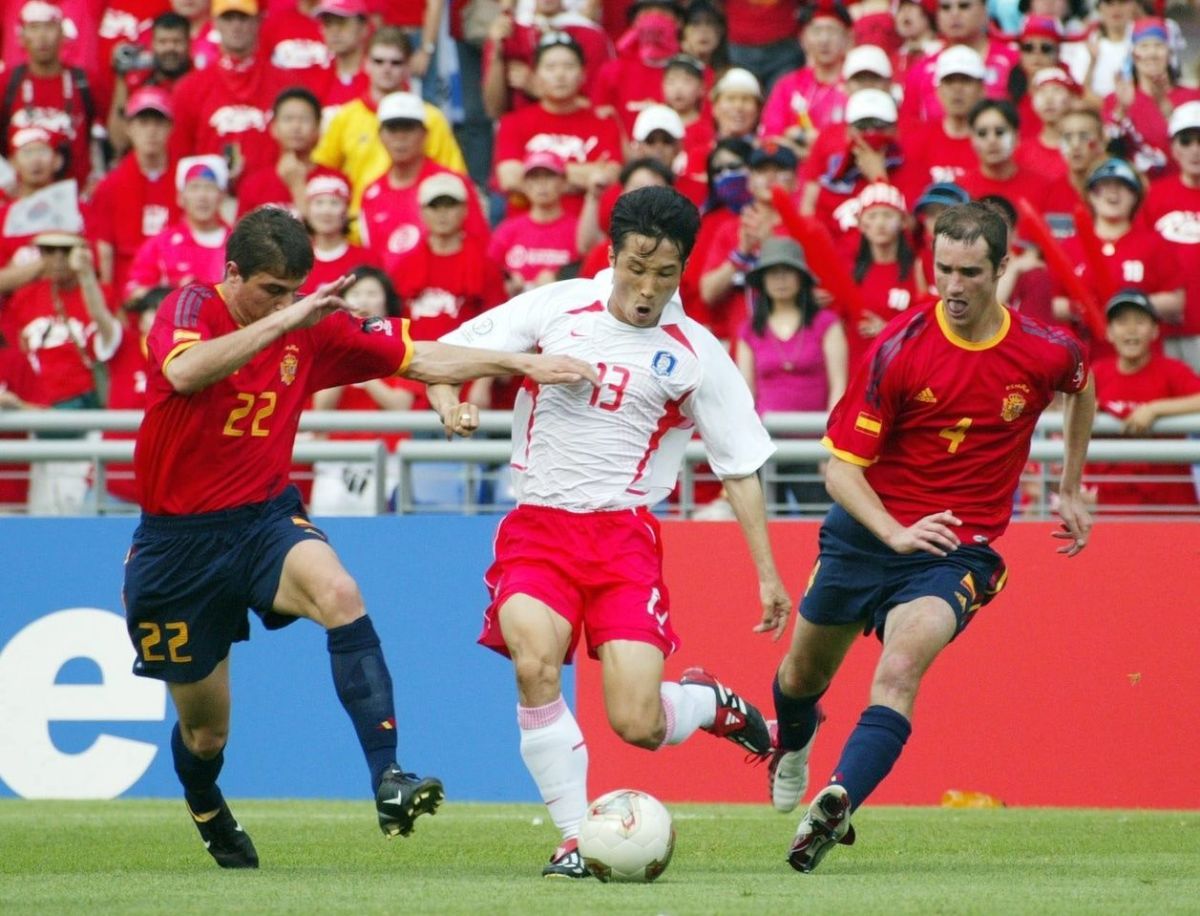
Their extra fitness once again proved beneficial as the Koreans found themselves playing extra time for the second game in a row. However, during the 90 minutes Spain had seen a goal disallowed after alleged shirt pulling in the penalty area. A 'Golden Goal' was then incorrectly chalked off in extra-time when young winger Joaquin was deemed to have run the ball out of play before crossing for Fernando Morientes to score. Spain also hit the post and were wrongly flagged offside countless times. There is no point denying that Hiddink's team were lucky to still be alive when the game entered a penalty shootout.
Joaquin, only 20 years of age at the time, missed the decisive kick and captain Hong Myung-bo took full advantage as he slotted his away to win it 5-3 for South Korea.
Again, sparks flew in the aftermath. Spanish defender Ivan Helguera had to forcibly dragged away after confronting Egyptian referee Gamal Al-Ghandour, describing La Roja's exit as 'robbery'. That theme persisted in the Spanish media, with Marca labelling the match officials 'thieves of dreams'.
In a strongly worded column for the Daily Telegraph the next day, Paul Hayward wrote, "Warning: do not cheer for South Korea. They have no right to be in a World Cup semi-final. Spain should be playing Germany in Seoul. The records say that the Koreans knocked out Spain in a penalty shoot-out in Gwangju on Saturday. The records are a lie and this tournament has descended into farce."
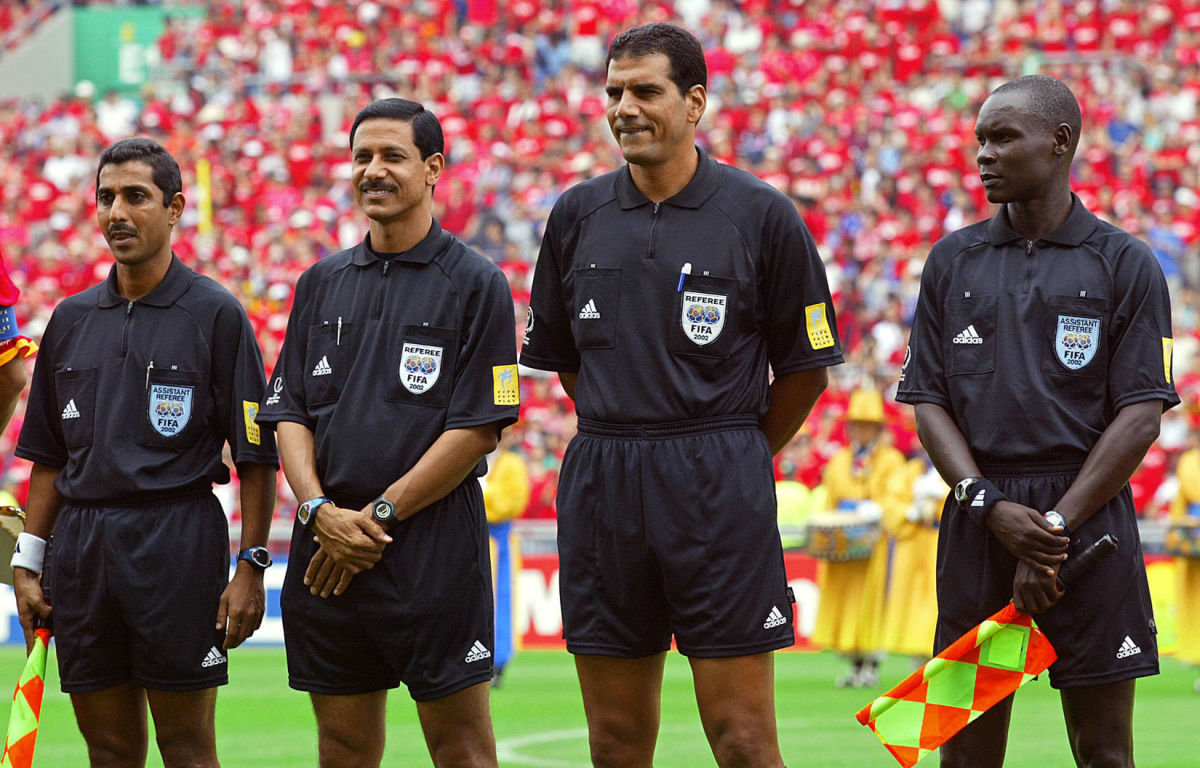
Aided by their vociferous home support and marathon levels of fitness, South Korea simply rode the wave of good fortune. To suggest match fixing on their part, as has always been the accusation of Argentina in 1978, seems wrong. Instead, the blame lay with FIFA over its appointment of match officials not fit for purpose on such a stage. Their inexperience and inability to handle the spotlight and crowd noise showed. Conspiracy theorists, meanwhile, have suggested that South Korea were deliberately favoured in a corrupt bid from president Sepp Blatter and other FIFA officials seeking personal gain to curry favour in Asia.
As recently as 2015, Italian publication Corriere dello Sport accused disgraced former FIFA vice-president Jack Warner, who was charged in the United States with wire fraud, racketeering and money laundering before being banned from football for life as part of the great FIFA corruption scandal, of handpicking Al-Ghandour to referee the Spain game, as well as a handful of other officials throughout the tournament.
South Korea's fairytale eventually did come to an end in the last four when a single goal from Michael Ballack saw Germany book a place in the final to meet eventual champions Brazil. Hiddink and his team had exceeded all expectations in a spectacular fashion, breaking their long standing World Cup duck, although their dream journey will forever be seen as tarnished.
